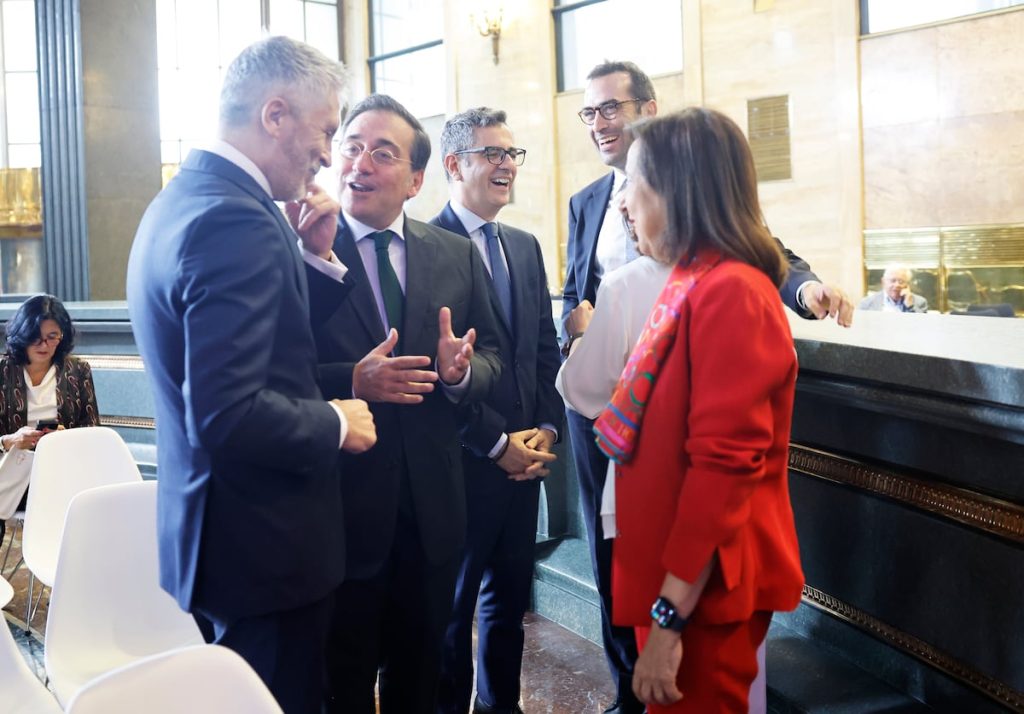The Spanish government under Pedro Sánchez is carefully navigating its relationship with Venezuela, ensuring that every word and gesture is measured to avoid antagonizing the Maduro regime. Recent comments by Defense Minister Margarita Robles referring to Venezuela as a “dictatorship” have caused tension, leading to Maduro recalling his ambassador to Madrid. This move has complicated Spain’s efforts to mediate the crisis and support opposition leader Edmundo González, who is seeking asylum in Spain. The government is frustrated with Robles for potentially undermining their carefully calibrated strategy in dealing with Venezuela, which includes collaboration with key allies like Brazil and Colombia.
Robles has a history of involving herself in sensitive international issues, as seen in her previous remarks about the situation in Gaza, which led to tension between Spain and Israel. Despite this, no one in the government, including Foreign Minister José Manuel Albares, has publicly disavowed Robles. This stands in contrast to how Albares previously handled tensions with ministers from other political parties, making it clear that only the President and himself were authorized to speak on foreign policy matters. While there are instructions to avoid public disputes between ministers within the government, there is internal discontent regarding Robles’ actions and concerns that it may jeopardize Spain’s mediation role in Venezuela.
Following González’s arrival in Spain, Sánchez welcomed him at La Moncloa in a carefully orchestrated manner to show solidarity without provoking further tensions with the Maduro regime. Spain aims to play a constructive role in finding a peaceful resolution to the crisis in Venezuela, leveraging its historical ties and interests in the country. Sánchez emphasized Spain’s support for González and other opposition leaders seeking refuge in Spain, while signaling a desire to maintain dialogue with Caracas to influence the crisis resolution positively. The government’s official stance is focused on advocating for transparent election results in Venezuela and working towards a democratic solution with EU partners.
Despite efforts to maintain a balanced approach towards Venezuela, Robles’ statements have sparked controversy within the government, risking Spain’s role as a key actor in the crisis resolution. The potential consequences of further escalating tensions with Maduro could impact Spain’s ability to mediate effectively and protect the interests of its citizens in Venezuela. The government is keen on preserving its diplomatic efforts and mediating role, particularly with former President José Luis Rodríguez Zapatero involved in backchannel negotiations. The priority remains on facilitating a peaceful transition and restoring democratic norms in Venezuela.
In conclusion, the Spanish government’s handling of the Venezuela crisis reflects a cautious and strategic approach to maintain influence while supporting the opposition and advocating for democratic processes. Despite internal tensions and the fallout from Robles’ remarks, Spain continues to pursue a diplomatic solution in Venezuela with a focus on EU unity, transparency in election results, and peaceful mediation. The challenge lies in balancing support for the opposition and engaging with the Maduro regime to prevent further deterioration and promote a democratic outcome in Venezuela.


